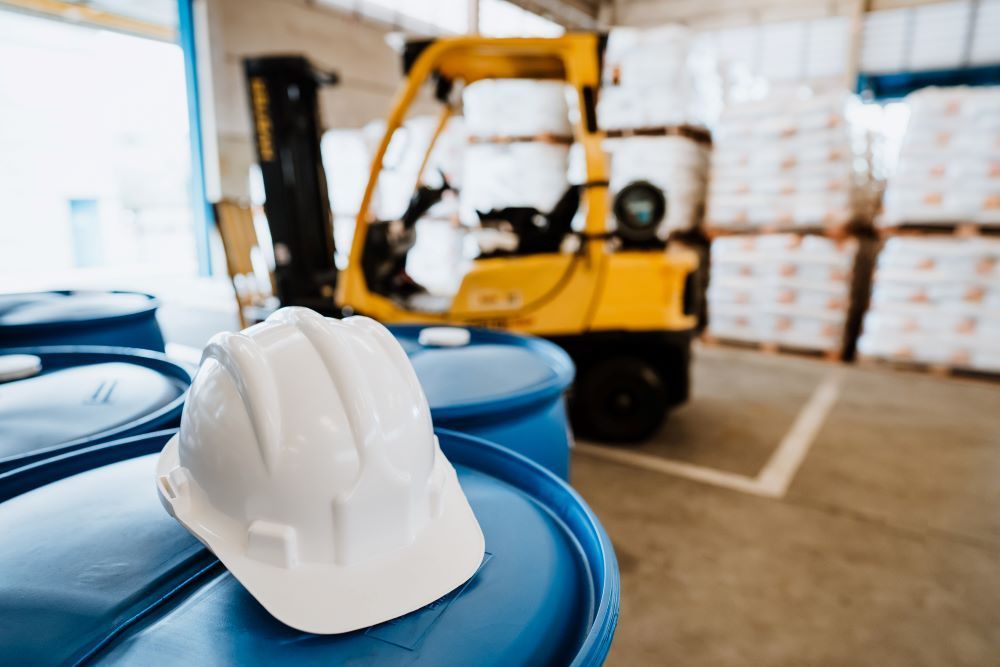What is Forklift Pre-start Checklist?

Why are pre-start checks necessary for forklift operation?
Performing pre-start checks is important as they help detect potential safety hazards and mechanical issues. This ensures the safety of the operator and other workers in the workplace and prevents accidents or equipment failure.
Perform pre-start checks for forklifts before each use or when changing operators. Regular inspections help identify potential issues and prevent accidents or injuries caused by faulty equipment.
What should be included in a forklift pre-start checklist?
A comprehensive pre-start checklist should consist of checks for fluid levels (oil, hydraulic fluid, coolant), tyre condition and pressure, fork and mast integrity, safety devices (seat belts, horns, lights), operational controls (brakes, steering, lift controls), and any signs of leaks or damage.
Checks Before Starting the Engine
Visual Inspection
- Forks and Mast - Check for any visible damage or wear such as cracks, bending, or deformities.
- Tires - Ensure they are properly inflated and free from significant cuts or bulges.
- Overhead Guard - Inspect for stability and any damage.
- Fluid Levels - Check oil, hydraulic fluid, coolant, and fuel levels.
- Leaks - Look under and around the forklift for any signs of fluid leaks.
Safety Equipment
- Seatbelt - Check for accessibility and proper function.
- Fire Extinguisher - Ensure it is present, charged, and within the expiry date.
- Lights and Reflectors - Confirm that all lights and reflectors are clean and intact.
Load Backrest Extension
- Ensure it is securely attached and in good condition.
General Condition
- Body and Frame - Check for any signs of damage or repair.
- Safety Labels and Decals - Ensure they are all present and legible.
Operator Environment
- Ensure the operator's seat is secure and the cabin area is free of loose objects.
Checks After Starting the Engine
Operational Checks
- Brakes - Test the service and parking brakes for responsiveness and strength.
- Steering - Check for ease and responsiveness.
- Dashboard and Controls - Ensure all gauges are functioning properly and warning lights (if any) are acknowledged and understood.
- Horn - Test the horn to make sure it is loud and clear.
- Control Levers - Test the lift, tilt, and side shift operations for smooth movement without hesitation or noise.
Lights and Indicators
- Check that headlights, brake lights, and any warning lights function correctly.
Noise
- Listen for unusual noises that could indicate engine or mechanical problems.
Hydraulic System
- Operate the hydraulic controls to lift and lower the forks, checking for smooth operation and ensuring there are no leaks or strange noises.
Exhaust System
- Check for unusual exhaust emissions, which could indicate engine problems.
Who is responsible for performing the pre-start checks?
The person operating or driving the forklift is responsible for checking it before use to ensure that it is safe to operate. Managers or supervisors can supervise the completion of these pre-start inspections to ensure compliance and address any issues that are identified.
What should I do if I find an issue during the pre-start check?
Any issues found during the pre-start check should be reported immediately to a supervisor or maintenance team. The forklift should not be operated until the issue has been addressed and the forklift is deemed safe for use.
Is training required to perform forklift pre-start checks?
Yes, operators should receive training on how to conduct pre-start checks properly. This training is typically part of a broader forklift operation certification program.
What are the legal implications of not performing forklift pre-start checks?
Failing to perform pre-start checks can lead to regulatory non-compliance, which may result in fines, legal issues, and increased liability in the event of an accident.
Pre-operational and operational checks on equipment like forklifts are essential for ensuring safety and operational readiness on a daily basis. However, it's important to understand that these checks are not a substitute for regular maintenance and servicing.
Regular maintenance and servicing are more comprehensive and are intended to maintain the long-term health and efficiency of the equipment. This includes tasks such as replacing worn parts, performing deep cleaning, updating software or control systems, and addressing less immediate but critical wear-and-tear issues that could lead to breakdowns if left unchecked. Maintenance on forklifts should be performed every 200-500 hours of operation time or approximately once every three months.
Our mobile team of forklift repair technicians are prompt and professional and come to repair or service your forklift.
---
Need to
hire forklift in Melbourne? Call us to speak to our friendly team, we have extensive fleet of forklift for different needs.





